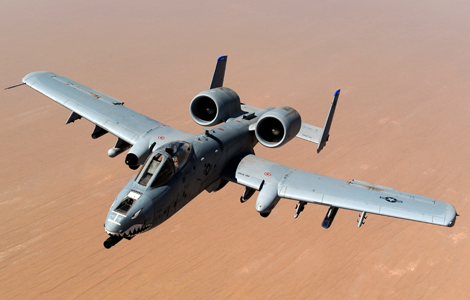
The lumbering-yet-deadly A-10 ‘Warthog’, remains in the theatre of war due a mistake with the design of its expensive successor
Two defence stories in the news this week have caught our attention – one showing the latest US Navy laser cannon being tested, the other announcing the return of a veteran US aircraft to the battlefield.
Both are stories that at their heart revolve around modern design: the possibilities of the cutting edge, married up with the reality of new designs running into problems that probably weren’t even considered during design.
Seen in live demonstration aboard the USS Ponce [see the video below], the US Navy Laser Weapon System (LaWS) has epic destructive power with pinpoint ‘laser’ accuracy, even with moving targets.
//www.youtube.com/embed/sbjXXRfwrHg
It’s this type of precision armament that is needed in modern warfare where the military is striving to eliminate unneeded casualties.
The LaWS has finished testing and is now aboard a ship in the Persian Gulf, but the next story makes you consider whether this might be slightly rushed.
At the other end is a new technology out in the field that would have benefited from more long-term testing.
The US Airforce (USAF) has reluctantly had to retain its A-10 Thunderbolt aircraft, in active service in the Middle East, as the latest F-35 fighter plane experiences problems.
The USAF has reported that the military’s expensive state-of-the-art F-35 might not be able to tolerate fuel that is over a certain temperature. Not ideal when being based in a desert.
Meanwhile, the A-10 Thunderbolt II aircraft, a slow, low-flying gunship, known affectionately as the ‘Warthog’, continues to fly sorties against ISIS over Iraq and Syria, with proven ability.
With so much money in the design and development of modern arms, embarrassing mistakes are not tolerable.
So while the LaWS system might look like a pinpoint system that could save innocent lives, it might be best to run some more tests.






